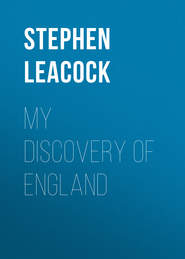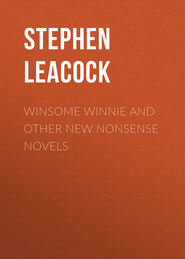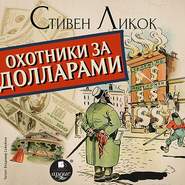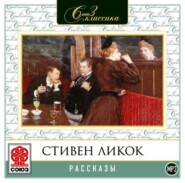По всем вопросам обращайтесь на: info@litportal.ru
(©) 2003-2025.
✖
Nonsense Novels
Автор
Год написания книги
2019
Настройки чтения
Размер шрифта
Высота строк
Поля
For nearly two months we continued our experiments on these lines. At times Annerly himself, so he told me, would leave money, often considerable sums, within reach of the phantasm, which never failed to remove them during the night. But Annerly, being a man of strict honour, never carried on these experiments alone except when it proved impossible to communicate with me in time for me to come.
At other times he would call me up with the simple message, "Q is here," or would send me a telegram, or a written note saying, "Q needs money; bring any that you have, but no more."
On my own part, I was extremely anxious to bring our experiments prominently before the public, or to interest the Society for Psychic Research, and similar bodies, in the daring transit which we had effected between the world of sentience and the psycho-astric, or pseudo-ethereal existence. It seemed to me that we alone had succeeded in thus conveying money directly and without mediation, from one world to another. Others, indeed, had done so by the interposition of a medium, or by subscription to an occult magazine, but we had performed the feat with such simplicity that I was anxious to make our experience public, for the benefit of others like myself.
Annerly, however, was averse from this course, being fearful that it might break off our relations with Q.
It was some three months after our first inter-astral psycho-monetary experiment, that there came the culmination of my experiences—so mysterious as to leave me still lost in perplexity.
Annerly had come in to see me one afternoon. He looked nervous and depressed.
"I have just had a psychic communication from Q," he said in answer to my inquiries, "which I can hardly fathom. As far as I can judge, Q has formed some plan for interesting other phantasms in the kind of work that we are doing. He proposes to form, on his side of the gulf, an association that is to work in harmony with us, for monetary dealings on a large scale, between the two worlds."
My reader may well imagine that my eyes almost blazed with excitement at the magnitude of the prospect opened up.
"Q wishes us to gather together all the capital that we can, and to send it across to him, in order that he may be able to organise with him a corporate association of phanograms, or perhaps in this case, one would more correctly call them phantoids."
I had no sooner grasped Annerly's meaning than I became enthusiastic over it.
We decided to try the great experiment that night.
My own worldly capital was, unfortunately, no great amount. I had, however, some 500 pounds in bank stock left to me at my father's decease, which I could, of course, realise within a few hours. I was fearful, however, lest it might prove too small to enable Q to organise his fellow phantoids with it.
I carried the money in notes and sovereigns to Annerly's room, where it was laid on the table. Annerly was fortunately able to contribute a larger sum, which, however, he was not to place beside mine until after I had withdrawn, in order that conjunction of our monetary personalities might not dematerialise the astral phenomenon.
We made our preparations this time with exceptional care, Annerly quietly confident, I, it must be confessed, extremely nervous and fearful of failure. We removed our boots, and walked about on our stockinged feet, and at Annerly's suggestion, not only placed the furniture as before, but turned the coal-scuttle upside down, and laid a wet towel over the top of the wastepaper basket.
All complete, I wrung Annerly's hand, and went out into the darkness.
I waited next morning in vain. Nine o'clock came, ten o'clock, and finally eleven, and still no word of him. Then feverish with anxiety, I sought his lodgings.
Judge of my utter consternation to find that Annerly had disappeared. He had vanished as if off the face of the earth. By what awful error in our preparations, by what neglect of some necessary psychic precautions, he had met his fate, I cannot tell. But the evidence was only too clear, that Annerly had been engulfed into the astral world, carrying with him the money for the transfer of which he had risked his mundane existence.
The proof of his disappearance was easy to find. As soon as I dared do so with discretion I ventured upon a few inquiries. The fact that he had been engulfed while still owing four months' rent for his rooms, and that he had vanished without even having time to pay such bills as he had outstanding with local tradesmen, showed that he must have been devisualised at a moment's notice.
The awful fear that I might be held accountable for his death, prevented me from making the affair public.
Till that moment I had not realised the risks that he had incurred in our reckless dealing with the world of spirits. Annerly fell a victim to the great cause of psychic science, and the record of our experiments remains in the face of prejudice as a witness to its truth.
III. – Guido the Gimlet of Ghent: A Romance of Chivalry
IT was in the flood-tide of chivalry. Knighthood was in the pod.
The sun was slowly setting in the east, rising and falling occasionally as it subsided, and illuminating with its dying beams the towers of the grim castle of Buggensberg.
Isolde the Slender stood upon an embattled turret of the castle. Her arms were outstretched to the empty air, and her face, upturned as if in colloquy with heaven, was distraught with yearning.
Anon she murmured, "Guido"—and bewhiles a deep sigh rent her breast.
Sylph-like and ethereal in her beauty, she scarcely seemed to breathe.
In fact she hardly did.
Willowy and slender in form, she was as graceful as a meridian of longitude. Her body seemed almost too frail for motion, while her features were of a mould so delicate as to preclude all thought of intellectual operation.
She was begirt with a flowing kirtle of deep blue, bebound with a belt bebuckled with a silvern clasp, while about her waist a stomacher of point lace ended in the ruffled farthingale at her throat. On her head she bore a sugar-loaf hat shaped like an extinguisher and pointing backward at an angle of 45 degrees.
"Guido," she murmured, "Guido."
And erstwhile she would wring her hands as one distraught and mutter,
"He cometh not."
The sun sank and night fell, enwrapping in shadow the frowning castle of Buggensberg, and the ancient city of Ghent at its foot. And as the darkness gathered, the windows of the castle shone out with fiery red, for it was Yuletide, and it was wassail all in the Great Hall of the castle, and this night the Margrave of Buggensberg made him a feast, and celebrated the betrothal of Isolde, his daughter, with Tancred the Tenspot.
And to the feast he had bidden all his liege lords and vassals— Hubert the Husky, Edward the Earwig, Rollo the Rumbottle, and many others.
In the meantime the Lady Isolde stood upon the battlements and mourned for the absent Guido.
The love of Guido and Isolde was of that pure and almost divine type, found only in the middle ages.
They had never seen one another. Guido had never seen Isolde, Isolde had never seen Guido. They had never heard one another speak. They had never been together. They did not know one another.
Yet they loved.
Their love had sprung into being suddenly and romantically, with all the mystic charm which is love's greatest happiness.
Years before, Guido had seen the name of Isolde the Slender painted on a fence.
He had turned pale, fallen into a swoon and started at once for
Jerusalem.
On the very same day Isolde in passing through the streets of Ghent had seen the coat of arms of Guido hanging on a clothes line.
She had fallen back into the arms of her tire-women more dead than alive.
Since that day they had loved.
Isolde would wander forth from the castle at earliest morn, with the name of Guido on her lips. She told his name to the trees. She whispered it to the flowers. She breathed it to the birds. Quite a lot of them knew it. At times she would ride her palfrey along the sands of the sea and call "Guido" to the waves! At other times she would tell it to the grass or even to a stick of cordwood or a ton of coal.
Guido and Isolde, though they had never met, cherished each the features of the other. Beneath his coat of mail Guido carried a miniature of Isolde, carven on ivory. He had found it at the bottom of the castle crag, between the castle and the old town of Ghent at its foot.
How did he know that it was Isolde?
There was no need for him to ask.
His heart had spoken.














